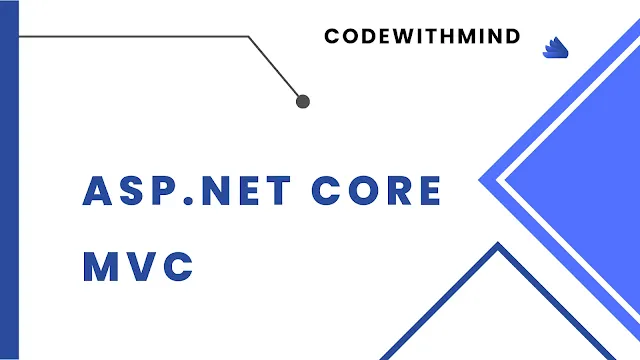ASP.NET MVC Core is a highly popular framework for developing web applications that utilize the Model-View-Controller (MVC) pattern. The main purpose of this framework is to facilitate developers in building highly maintainable, testable, and scalable web applications. Microsoft has provided this framework as one of its several web development frameworks in the .NET ecosystem.
The Model-View-Controller (MVC) pattern divides the application into three separate components: Model, View, and Controller. The Model component represents the application data and business logic. The View component is responsible for displaying data to the user, while the Controller component handles user input and manages the interaction between the Model and View components.
The use of the MVC pattern in ASP.NET MVC Core ensures a clear separation of concerns, enabling developers to work on different aspects of the application in isolation. This enhances the maintainability of the codebase, which is essential for long-term projects. It also helps in reducing the chances of introducing bugs in the code.
.NET Core is a modern, cross-platform, open-source, and modular version of the .NET Framework. It is designed to provide a consistent development experience across different platforms, including Windows, Linux, and macOS. Developers can use .NET Core to create applications for different types of devices and operating systems.
ASP.NET Core is a version of ASP.NET that is built on top of .NET Core. It is also cross-platform and open-source and can be used to build web applications for any platform. It is designed to be lightweight, fast, and flexible, making it a popular choice among developers.
ASP.NET Core MVC is the MVC framework for building web applications on top of ASP.NET Core. It provides a range of features and functionalities similar to those provided by ASP.NET MVC, but with an added advantage of being platform-independent. This means that developers can use it to build web applications for any operating system, including Windows, Linux, and macOS.
One of the significant advantages of ASP.NET Core MVC is its flexibility. It allows developers to build web applications using any front-end technology, such as Angular, React, or Vue. This gives developers the freedom to choose the best front-end technology for their application, without being tied to a particular technology stack.
Another significant advantage of ASP.NET Core MVC is its ease of use. It provides a straightforward and intuitive development experience, allowing developers to focus on building the application's features and functionality rather than worrying about infrastructure and configuration details.
In conclusion, ASP.NET MVC Core is a highly popular and widely used framework for building web applications using the MVC pattern. It provides a range of features and functionalities that make it highly maintainable, testable, and scalable. With the added advantages of being platform-independent and flexible, it has become a popular choice among developers. The use of .NET Core and ASP.NET Core further enhances its capabilities, making it a robust and reliable choice for web application development.
Thank you for reading this article. If you found this article helpful, be sure to follow us for more articles and tutorials on ASP.NET Core, C# and other related technologies. Your feedback and comments are always welcome, so feel free to share your thoughts below. We'd love to hear from you !

